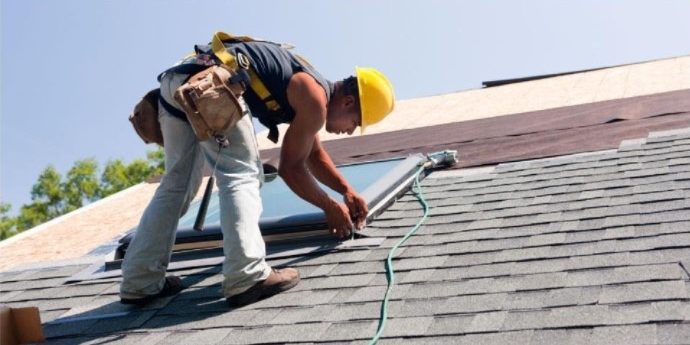When it comes to maintaining the safety and integrity of your home, the roof plays a pivotal role. Recognizing when you need to call in a residential roof repair contractor can save you not only money but also ensure your home remains a safe place for your family. This guide provides a comprehensive look at everything you need to know when hiring a residential roof repair contractor, from identifying signs of damage to understanding the repair process and everything in between.
Recognizing the Need for Roof Repair
Common Signs of Roof Damage
Damage to your roof can manifest in several ways. Missing shingles, noticeable leaks during rainfall, and visible sagging are clear indicators that it might be time to contact a residential roof repair contractor. Regular inspections can help catch these issues early before they escalate into more significant problems.
The Consequences of Neglecting Roof Repairs
Neglecting to address these issues promptly can lead to more severe consequences, including structural damage and costly water damage inside your home. The longer you wait, the more expensive and extensive the damage can become, underscoring the importance of quick action.
When to Call a Professional
If you notice any of the aforementioned signs or if your roof is older than 20 years, it’s advisable to call a residential roof repair contractor for a professional assessment. They can provide a detailed inspection and determine whether a repair or full replacement is necessary.
Types of Roofing Issues
Weather-Related Damage
Severe weather conditions like heavy storms, wind, hail, and even prolonged exposure to extreme sun can significantly damage your roof. A qualified residential roof repair contractor will be able to assess weather-related damage and suggest the best course of action.
Age-Related Wear and Tear
Over time, all roofing materials begin to deteriorate. This natural wear and tear can compromise your roof’s ability to protect your home. A residential roof repair contractor can evaluate the extent of age-related deterioration and recommend necessary repairs or replacements.
Improper Installation Concerns
Sometimes, roofing issues stem from improper installation. If your roof was not installed correctly, it might be prone to problems like leaks or premature wear. In such cases, a skilled residential roof repair contractor can make the necessary corrections to ensure your roof is up to standard.
Choosing the Right Contractor
Licensing and Certification
Always ensure that your residential roof repair contractor is fully licensed and certified. These credentials are a testament to their expertise and legality in performing roof repair services in your area.
Local Experience
Hiring a contractor with local experience is beneficial as they are familiar with regional weather challenges and local building codes, which can affect roof repair work.
Reputation and Reviews
Before hiring a contractor, check their reputation and read online reviews. A reputable residential roof repair contractor should have positive feedback from previous clients and a solid track record.
Preparing for a Roof Repair Project
Initial Roof Inspection
A thorough roof inspection by a qualified residential roof repair contractor will determine the specific issues and the extent of damage to your roof. This first step is critical in planning the appropriate repairs.
Understanding Your Roofing System
Knowing the type of roofing system you have can help you understand the repair process. Your contractor can explain the materials and construction of your roof, which impacts the approach to repair.
Communicating with Your Contractor
Effective communication with your residential roof repair contractor is essential. Ensure that you clearly express any concerns and understand the proposed repair process.
Roof Repair Methods
Patching and Partial Replacements
For minor damage, patching or partial replacements may be sufficient. These methods are cost-effective and can extend the life of your roof without the need for a complete overhaul.
Total Roof Overhaul
In cases where the damage is extensive or the roof is beyond its lifespan, your residential roof repair contractor may recommend a total roof replacement.
Innovative Repair Technologies
Ask your contractor about the latest in roofing technology—new materials and techniques that offer longer-lasting repairs and enhanced performance.
Cost Considerations
Estimating Roof Repair Costs
The cost of roof repairs can vary widely based on the extent of damage and the materials used. Your residential roof repair contractor should provide a detailed estimate that includes all costs associated with the repair.
Insurance and Roof Repairs
If your roof damage is the result of an insured event (like a storm), your homeowner’s insurance may cover some or all of the repair costs. Discuss this with your residential roof repair contractor and your insurance provider to understand what is covered.
Financing Options
For larger repair projects that are not covered by insurance, financing options may be available. Discuss these with your residential roof repair contractor to find a solution that fits your financial situation.
The Importance of Timely Repairs
Preventing Further Damage
Addressing roof repairs promptly can prevent additional damage to your home, ultimately saving you money and preserving the structural integrity of your home.
Enhancing Home Value
A well-maintained roof enhances your home’s overall value and curb appeal, an important consideration if you plan to sell your home in the future.
Ensuring Safety
The most critical aspect of timely roof repairs is the safety it ensures for your family and your possessions. A compromised roof can lead to dangerous situations, particularly during severe weather.
Sustainable Roofing Solutions
Eco-Friendly Materials
Discuss with your residential roof repair contractor about using sustainable materials that are both effective and environmentally friendly.
Energy Efficiency Improvements
Some roofing materials and repair techniques can improve the energy efficiency of your home, reducing heating and cooling costs.
Long-Term Sustainability
Consider the long-term sustainability of the roofing materials and repair methods. Your residential roof repair contractor can provide insights into the most durable and maintenance-free options available.
Legal and Insurance Issues
Navigating Contracts
Ensure that the contract with your residential roof repair contractor clearly outlines the scope of work, cost, and timeline, as well as any warranty information.
Warranty Offers
Understand the warranty that your residential roof repair contractor provides. This warranty should cover both materials and labor for a specified period.
Permitting and Regulations
Your contractor should handle any necessary permits and ensure that all work meets local building regulations.
Maintenance Tips Post-Repair
Regular Inspection Schedule
Set up a regular inspection schedule with your residential roof repair contractor to ensure your roof remains in good condition.
Immediate Care Tips
Following repairs, there may be immediate maintenance tips you can perform to extend the life of your roof.
Long-Term Maintenance Strategies
Develop a long-term maintenance strategy with your residential roof repair contractor to help prevent future issues.
Case Studies and Success Stories
Before and After Examples
Visual examples of successful repairs by your residential roof repair contractor can demonstrate their capability and quality of work.
Customer Testimonials
Testimonials from satisfied customers provide additional confidence in your contractor’s reliability and quality of work.
Lessons Learned
Every repair offers a chance to learn something new about maintaining the longevity and effectiveness of your roof. Discuss these lessons with your residential roof repair contractor.
Frequently Asked Questions About Residential Roof Repair
1. How do I know if my roof needs repairs?
Signs that your roof may need repairs include missing, broken, or curling shingles; stains on ceilings or walls; visible roof sagging; and visible light through the roof in your attic.
2. What are the common causes of roof damage?
Common causes include weather-related damage from wind, rain, hail, and snow; impact from debris; age-related wear and tear; poor initial installation; and lack of regular maintenance.
3. How often should I have my roof inspected?
It’s recommended to have your roof inspected by a professional at least once a year or after any severe weather event. Regular inspections can help catch potential problems before they require significant repairs.
4. Can I repair my roof myself?
While DIY projects can be tempting, roof repairs often require professional skills to ensure they are done safely and effectively. Incorrect repairs can lead to more significant problems or void manufacturer warranties. It’s best to consult a professional residential roof repair contractor.
5. How much does roof repair cost?
The cost of roof repair can vary widely depending on the extent of the damage, the materials needed, and the labor required. Minor repairs might cost a few hundred dollars, whereas extensive damage could run into thousands.
6. How long does it take to repair a roof?
The time required for a roof repair can vary from a few hours to several days, depending on the damage’s extent and complexity. Your residential roof repair contractor should provide an estimated timeline after assessing the damage.
7. What should I look for in a roof repair contractor?
Look for a licensed and insured contractor with good reviews and a solid reputation. They should offer a clear estimate, a detailed repair plan, and a warranty on both materials and workmanship.
8. Will roof repairs affect my home insurance?
Some roof repairs might be covered under your home insurance, especially if caused by unforeseen events like storms or fallen trees. Always check with your insurance provider to understand what is covered and to ensure proper documentation for claims.
9. What types of materials are used for roof repairs?
Materials vary based on the existing roof, but common ones include asphalt shingles, metal panels, tiles, and wood shakes. A professional residential roof repair contractor can recommend the best materials based on your roof’s condition and local climate.
10. What is the best season to repair a roof?
Roof repairs can be conducted any time of year, depending on the local weather conditions. However, late spring through early fall is generally ideal due to more predictable weather and warmer temperatures, which are better for installing roofing materials.
11. Can roof repairs be prevented?
While not all roof damage can be prevented, regular maintenance and timely repairs of minor issues can significantly extend a roof’s lifespan and prevent more severe problems.
12. What guarantees should I expect with roof repairs?
Many residential roof repair contractors offer guarantees or warranties on their workmanship, in addition to any manufacturer warranties on materials. Ensure you understand what is covered under these warranties before the work begins.
Conclusion
Hiring the right residential roof repair contractor is essential for ensuring the long-term health of your roof and, by extension, your home. By understanding the signs of roof damage, knowing what to look for in a contractor, and being informed about the repair process, you can make educated decisions that ensure your roof’s longevity.
Call to Action
If you suspect that your roof may need repairs, don’t wait. Contact a reputable residential roof repair contractor today to schedule an inspection and address any potential issues before they become major problems. Your home, and your peace of mind, deserve it.







